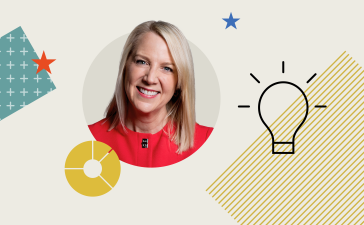Speaking before an audience of senators in Brasília earlier this year, supreme court justice Alexandre de Moraes mused on one of the great conundrums of the internet age. “At the turn of the century, there was no social media. We were happy and didn’t know it,” he joked.
As if hoping to restore a modicum of that lost innocence, the judge last week banned X in Latin America’s largest nation, after the platform owned by Elon Musk refused to block accounts suspected of spreading hate messages or disinformation.
The ruling, which affects roughly 20mn Brazilian users of the site, has pitched Moraes into the middle of a global debate about freedom of speech and how social media should be regulated. To his defenders, the 55-year-old magistrate is a hero who has protected democracy against a deluge of fake news. To detractors, he is guilty of censorship and unfairly targets conservatives.
Moraes decreed X’s suspension after it failed to meet a deadline he set to appoint a new legal representative, as required by Brazilian law. It followed an escalating tit-for-tat with Musk over takedown orders. The tech entrepreneur has labelled the judge a “dictator”, echoing Brazil’s rightwing movement.
“It was an extreme act that impacted the lives of many citizens,” former supreme court justice Marco Aurélio Mello told CNN Brasil. “It’s not a cultural advance, but a setback”. Even some who once backed the justice’s hardline stance now wonder if he has over-reached.
Moraes has never shied away from political storms. In the past he has engaged in heated confrontations with former far-right president Jair Bolsonaro. He has spearheaded a controversial crackdown against misinformation online, issuing social media account bans and fining platforms.
Tall, bald and imposing, the divisive figure nicknamed Xandão — or “Big Alex” — is considered one of the most influential people in Brazil. He earned praise from adversaries of Bolsonaro for facing down the populist leader. But for Bolsonaristas, Moraes is anathema. The judge has become a lightning rod for criticism that Brazil’s supreme court is exceeding its constitutional boundaries. His opponents warn of a slide into judicial autocracy. At a rally in São Paulo on Saturday to mark Brazil’s independence day, tens of thousands of protesters are expected to demand his impeachment.
While leftist president Luiz Inácio Lula da Silva has endorsed his actions against X, Moraes is an unlikely progressive darling. “He’s always been a conservative, since his days as a college student. The extreme right now trying to label him as a leftwinger is laughable,” says one person who worked with the court.
Born and raised in the city of São Paulo, Moraes studied at the state’s prestigious public university. He served in political roles in its state and municipal governments before becoming justice minister under centre-right president Michel Temer, who appointed him to the supreme court in 2017. At the time, Lula’s Workers’ party slammed the nomination.
The justice’s pastimes offer a glimpse into his psychology. A supporter of the Corinthians football club — whose fans revel in their “crazy” reputation — he also practises the martial art muay thai. In a rare media interview with Le Monde, he revealed a passion for biographies of towering historical leaders like Winston Churchill, Julius Caesar and his namesake Alexander the Great.
A turning point in Moraes’s career trejectory came during Covid-19, when the supreme court challenged government policies. Bolsonaro’s attacks on the institution led to a battle of wills with Moraes, whose judgments the then-president openly vowed to disobey at one point.
Another point of contention was Bolsonaro’s unproven assertions that Brazil’s electronic voting machines were vulnerable to fraud. After he summoned foreign ambassadors to air the claims, an electoral tribunal headed by Moraes barred the rightwinger from running for office until 2030. Bolsonaro denied any wrongdoing.
People who know the justice suggest that his experience as a prosecutor has shaped his combative approach against perceived threats to democratic institutions. “For him it’s a constant fight,” said one. “You can’t leave any gaps open.”
To allies of Moraes, these dangers were displayed on January 8 2023, when radical Bolsonaristas trashed government buildings including the Supreme Court, calling for a military coup against Lula.
However, his outsized role in Brazilian public life has come at a personal cost. Death threats have been made against Moraes and his family. Critics allege his methods imperil liberties. “He concentrates a lot of power [and] constantly tests the limits of his own authority,” says Fernando Schüler, a politics professor at Insper.
Moraes’s decision to freeze the Brazilian bank accounts of Musk’s satellite company Starlink and issue a $8,900 daily fine for anyone using a virtual private network (VPN) to circumvent the X ban has been decried by some jurists as disproportionate. A survey by AtlasIntel found nearly 51 per cent of respondents disagreed with the X ban, versus just over 48 per cent in favour.
In the clash of egos between a tech billionaire and a steely Brazilian judge, it is difficult to envisage either conceding significant ground. But David Nemer, professor of media studies at the University of Virginia, says Moraes has sent a strong message: “[He] has challenged Musk and the whole world has been watching. Brazil is showing he’s not unbeatable.”










